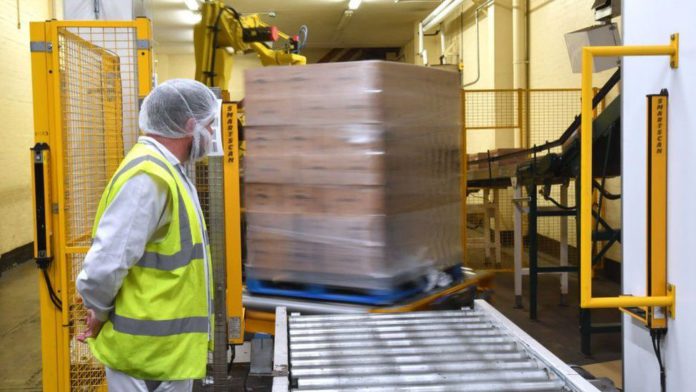The UK is set for the slowest growth of the G7 richest economies next year, the International Monetary Fund has warned.
It is predicting UK growth will fall to just 0.5% in 2023, much lower than its forecast in April of 1.2%.
The global economy has shrunk for the first time since 2020, the IMF said, hit by the Ukraine war and Covid-19.
With growth stalling in the UK, US, China and Europe, the world “may soon be teetering on the edge of a global recession”, it said.
“We know that people are feeling the impact of rising prices, caused by global economic factors, triggered by the illegal Russian invasion of Ukraine,” a HM Treasury spokesperson said in a statement, adding that help for households included £400 off energy bills plus personal tax cuts worth up to £330 a year.
READ ALSO:
The IMF has cut its 2022 global growth forecast to just 3.2% and warned the slowdown risks being even more severe.
It said fast-rising prices were to blame for much of the slowdown, with households and businesses squeezed by a combination of higher prices and higher borrowing costs as policymakers raise interest rates to try to counter inflation.
“The global economy, still reeling from the pandemic and Russia’s invasion of Ukraine, is facing an increasingly gloomy and uncertain outlook,” economist Pierre-Olivier Gourinchas wrote in a blog outlining the international lending body’s latest economic forecast.
“The outlook has darkened significantly” since April, the last time the IMF issued forecasts, he added.
The global economy contracted in the three months to July, which was the first decline since the pandemic hit, the IMF said.
The probability of a recession in the G7 economies – Canada, France, Germany, Italy, Japan, the US and UK – now stands at roughly 15% – nearly four times higher than usual.
While UK growth is expected to remain relatively strong this year, Mr Gourinchas said unusually high inflation – faster than in Europe or the US – is expected to take a toll in 2023.
“If you were to look at both years together, it’s actually not very far from where the other advanced economies are,” he told the BBC. “The one thing that worries me more about the UK economy is that their inflation numbers seem to be quite high. There is a fairly high pass through from high gas prices to broader prices in the economy.
“That would signal even further monetary policy tightening by the Bank of England and that would also weigh down on growth going forward.”
The IMF now expects inflation to reach 6.6% in advanced economies and 9.5% in emerging market and developing economies – nearly a full percentage point higher than it expected in April.
“Inflation at current levels represents a clear risk for current and future macroeconomic stability and bringing it back to central bank targets should be the top priority for policymakers,” Mr Gourinchas said.
“Tighter monetary policy will inevitably have real economic costs, but delaying it will only exacerbate the hardship.”

